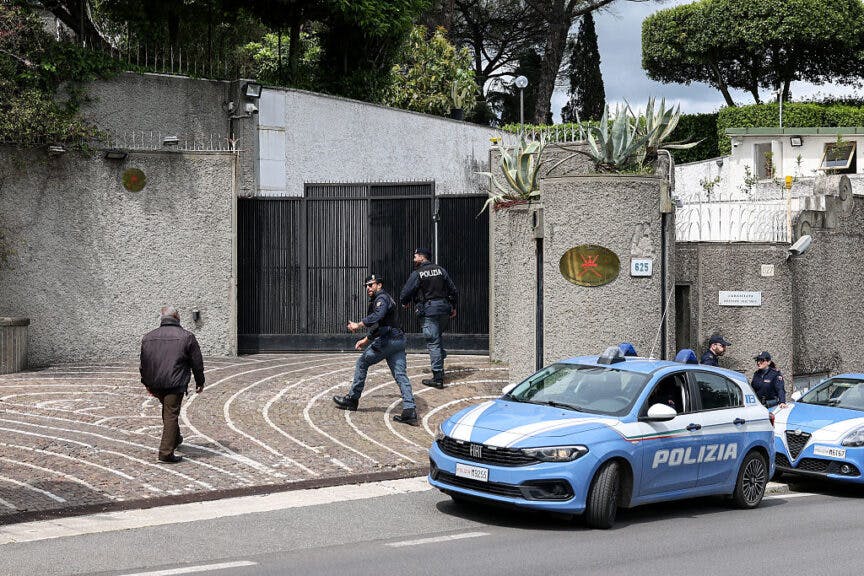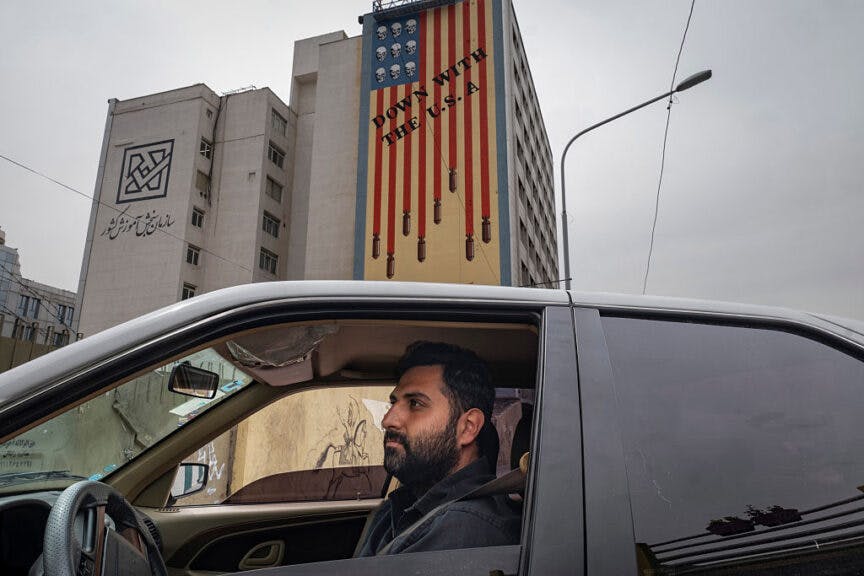Once again, the Islamic Republic of Iran is drawing the United States into talks through the Sultanate of Oman. Some Western officials and analysts frame this as an opportunity for de-escalation, but the evidence suggests otherwise. The regime’s decision to engage is a tactical maneuver aimed at delaying pressure, repositioning itself diplomatically, and benefiting from potential external shifts. If not met with firm containment, this round of diplomacy will mirror past failures.
Iran’s current position is fragile. The economy is deteriorating rapidly, with persistent inflation and currency depreciation undermining basic economic stability. Domestically, the regime continues to face discontent that, while suppressed by force, has not been resolved through legitimacy.
Regionally, its power projection has eroded. Hamas has been severely degraded, Hezbollah has suffered significant military setbacks, and Iran’s network of militias faces growing pressure from Israel and Western-aligned actors. The regime is seeking time for political dynamics in Washington to shift, for global energy markets to realign, and for Persian Gulf partners to return focus to short-term economic stabilization over long-term isolation strategies. None of this signals readiness to change course — it signals a regime buying time, again.
Engagement with Iran does not support the Iranian people. Every round of diplomacy has ended with the IRGC stronger, dissidents more isolated, and Tehran more defiant. Historically, sanctions relief and renewed diplomatic engagement have bolstered the regime’s internal security networks. Resources gained through these openings are funneled to the Islamic Revolutionary Guard Corps (IRGC), intelligence services, and patronage systems that reinforce regime control. The October 7 massacre was the price of appeasement. Billions flowed to Iran under Biden — and blood flowed in Israel.
The coalition pushing for a deal does not have American interests in mind. China and Russia want breathing room for their ally. The Europeans want to claim progress ahead of their own elections. And some in the Persian Gulf would rather appease Tehran than risk direct confrontation.

Italian police officers outside the entrance of the Omani embassy, in Rome, Italy, on Saturday, April 19, 2025. Photographer: Alessia Pierdomenico/Bloomberg via Getty Images
President Donald Trump has an opportunity to break this cycle of failure. His administration must recognize that Supreme Leader Ali Khamenei is not a rational actor. He does not negotiate in good faith, he does not reform, and he does not seek peace. Like Hamas’s Yahya Sinwar, Khamenei sees both survival and martyrdom as victory — an outlook rooted in radical Islamist ideology that glorifies death over compromise. As Gaza burned, Sinwar sat gripping a stick, waiting for the drone that would kill him — convinced he had already won. Khamenei would do the same to Iran. He would rather watch cities collapse and millions suffer than compromise with the West.
Some argue that if Tehran dismantles its nuclear program and allows missile inspections, a deal might be acceptable — similar to the Libya model. But that view misunderstands the nature of the Islamic Republic. Its nuclear ambitions are a symptom, not the root of the threat. The regime’s hostility toward the U.S. and Israel is ideological, rooted in its identity. That identity cannot be negotiated away. A deal now would prolong the regime’s survival and empower the institutions behind its repression and aggression.
Tehran’s use of calibrated escalation further underscores the risks of engagement without parallel containment. In 2019, the regime struck Saudi oil infrastructure expecting a restrained U.S. response. Israeli strikes on IRGC-affiliated targets have been met with limited, symbolic responses rather than strategic confrontation. This behavior is consistent with a doctrine of calculated, limited escalation designed to generate leverage and delay decisive retaliation. It is not evidence of de-escalation.
While indirect negotiations may appear diplomatically useful, they allow Tehran to manipulate outcomes while avoiding direct commitments. Engagement becomes a form of enablement. The danger is not the act of negotiation itself, but the repetition of a failed process in which pressure is relieved while Tehran stabilizes, regroups, and continues regional destabilization.
To protect U.S. and allied interests, the correct response to the regime’s current posture is neither renewed engagement nor war, but the full activation of isolation mechanisms. This includes triggering the UN snapback sanctions mechanism under UNSCR 2231, designating the IRGC as a terrorist organization at the EU level, freezing assets linked to Chinese and Malaysian brokers facilitating regime oil exports, and exposing the logistical infrastructure that allows the IRGC to operate regionally. European banks and Persian Gulf financial institutions still transacting with regime-linked entities should face coordinated diplomatic and financial pressure. Isolation must be operational and enforced.

An Iranian driver sits in his vehicle, which is parked under an anti-U.S. mural in downtown Tehran, Iran, on April 12, 2025, during the day of the Iran-U.S. nuclear discussions. (Photo by Morteza Nikoubazl/NurPhoto via Getty Images)
In the likely event of further regime degradation, the United States and its allies must be prepared for a leadership vacuum. Any transition scenario must include support for figures with broad-based legitimacy, cross-generational appeal, and a clear public commitment to secular democratic governance. The son of the late Shah is uniquely positioned as a unifying figure with broad-based legitimacy and recognition required to facilitate a post-regime transition. He consistently advocates a referendum-based process to empower Iranians in determining their political future, explicitly refraining from promoting any particular system, including monarchy. His value lies in providing political continuity, grounded solely in his national stature and widespread public recognition during a potentially volatile transition period. During recent national celebrations — including Nowruz and Chaharshanbe Suri — Iranians chanted his name in cities across the country. These were not isolated incidents or orchestrated campaigns; they were widespread, public expressions of recognition. No other figure inside or outside Iran has generated this level of organic visibility.
There are additional risks that must be managed. Steve Witkoff, appointed as special envoy by the Trump administration, currently leads the Iran talks. His extensive business connections with investors in Persian Gulf states, notably Qatar and Saudi Arabia, raise legitimate concerns about regional influence over U.S. policy direction. Some regional partners could advocate for a ‘stability-focused’ agreement that sustains a weakened yet intact Islamic Republic, rather than supporting a genuinely secular and democratic alternative beyond their sphere of influence. This scenario would replicate the strategic failures of the JCPOA, entrenching regime survival without accountability, and directly compromising U.S. and Israeli national security interests.
If negotiations stall, Tehran’s fallback is limited, survivable conflict. The regime has long embraced a strategy of controlled escalation — not to win wars, but to provoke just enough confrontation to shift global focus, fracture internal dissent, and reset its legitimacy. In its calculus, limited war is safer than isolation. That’s why containment must be decisive. If neither diplomacy nor confrontation offer the regime an exit, internal collapse becomes inevitable.
The current diplomatic track with Iran is not designed to prevent conflict or nuclear escalation. It is designed to create space for the regime to survive. That calculation must be reversed. The United States and its allies must pursue containment and isolation as the strategic baseline — not the fallback. That’s how you flip the script — and how you make Tehran fear American resolve again.
* * *
Dr. Aidin Panahi is an Iranian-American research professor, energy expert, and political activist. He is the cofounder of the “From Boston to Iran” initiative and his analyses on security and policy issues have appeared in outlets including The Jerusalem Post, Washington Times, Middle East Forum, Homeland Security Today, and Visegrád24. X: @Aidin_FreeIran
The views expressed in this piece are those of the author and do not necessarily represent those of The Daily Wire.

Continue reading this exclusive article and join the conversation, plus watch free videos on DW+
Already a member?

















